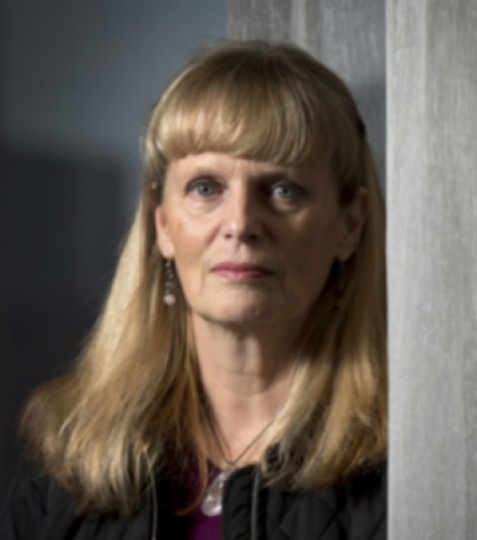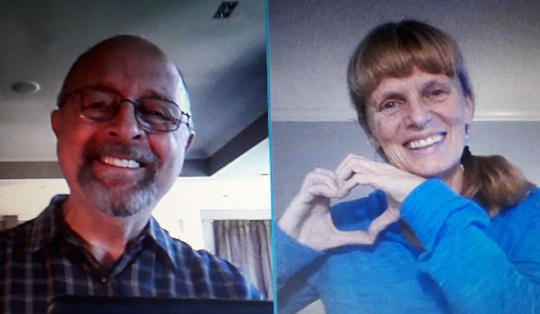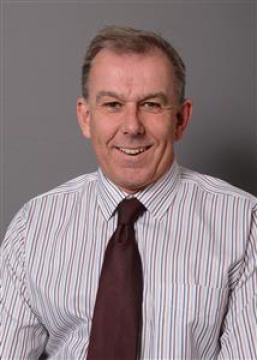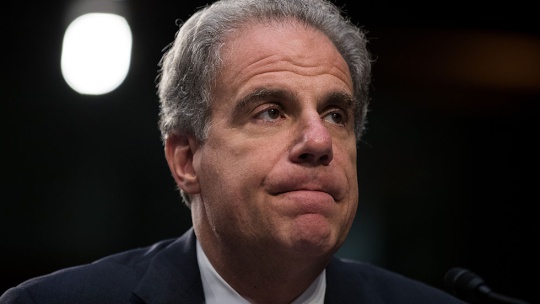
Carolyn Dare-Wilfred, stuck in Canada without seeing her husband for 3 years.
The first article in an investigative series by Joseph Cederwall, Former Immigration Lawyer, and Co-editor of Scoop.
A senior Christchurch couple, Harmon and Carolyn Wilfred who arrived in New Zealand together in 2001, have been forcibly separated for over three years due to the decisions and actions of Immigration New Zealand (“INZ”) and the New Zealand Judicial system. On 2 November 2018, INZ again declined Canadian-born Carolyn’s application for a temporary Business Visa on what the couples’ lawyer believes are highly questionable legal grounds. This decision, which has no appeal rights, has finally prompted the couple to go public.
Carolyn is the owner of a nationally distributing and exporting food and beverage company that employs a number of specialised, skilled workers in Marlborough. She also has a personal net worth in the tens of millions, no criminal record and strong community connections in New Zealand which makes this decision incomprehensible to the Wilfreds and their legal counsel.
The Wilfreds have not seen each other in person since September 2015 when Carolyn was forced to leave New Zealand by the sudden and unexplained refusal to grant her further business or visitor visas. This senior couple remain “absolutely in love”, despite this now extended forced separation.
To be forcibly separated from the one
you love so much for so long, when you have done nothing
wrong, is so incredibly cruel. A skype marriage isn’t
great, but we are thankful for that. Our hearts ache for
each other every moment of every day. We try not to focus on
it too much as tears flow. We miss each other terribly! It
is difficult for us to understand how the people in power
who are doing this to us can sleep at night.
-
Carolyn and Harmon Wilfred

Carolyn and Harmon, still very much in love despite physical separation
Carolyn says she literally “followed her husband to the ends of the earth to begin a new life down under.” After committing more than $5 million in New Zealand businesses and charitable contributions through various New Zealand NGOs and their own charitable trust, by 2004 the Wilfreds thought they were on their way to being accepted into New Zealand society by the local community, members of parliament and business leaders. However, this dream was dashed, when INZ effectively expelled and barred Carolyn from the country without any reasonable explanation.

Michael Carley, Manager - Visa Services at INZ
When asked for comment on Carolyn’s case, Michael Carley, Manager of Visa Services at INZ told Scoop,
Only New Zealand citizens have right to be in
New Zealand. For all other nationalities, the ability to
enter New Zealand is a privilege and those who wish to come
here need to meet the requirements set out in immigration
instructions. INZ were not satisfied that Ms Dare is a bona
fide applicant who genuinely intends to only stay in New
Zealand temporarily.
The
Case For Carolyn’s Business Visa
Carolyn Dare Wilfred is a Canadian Citizen and an entrepreneur with significant business investments in New Zealand. She is also heiress to a major Canadian family business in Canada with her shares worth an asserted value of in excess of C$50 million. However, she was refused a temporary business visa by INZ on the grounds of a purported lack of ‘bona fides’.
This justification commonly used by INZ for decline decisions, is essentially a catchall for their prediction that an applicant is ‘unlikely to depart New Zealand’. This prediction, however, does not have much substance behind it in Carolyn’s case, according to her lawyer David Ballantyne. Her friends, family and life are all in Canada, where she also has extensive business interests.

David Ballantyne, the Wilfreds' lawyer
The
decision is inconsistent with Immigration New Zealand’s
Operational Manual. Mrs Dare Wilfred has no family in New
Zealand other than her husband. Her only financial
commitment to New Zealand is her recently acquired business,
and that is the reason she sought a temporary business
visitor visa.
As Carolyn asks, what advantage would overstaying in New Zealand confer on her? If she were to do so, she would no doubt eventually be deported and certainly never allowed to return to New Zealand, nor travel outside of Canada to any developed nation. To claim that a sensible, mature business woman would make such an irrational and self-destructive decision placing her business interests and family unity at risk is in her view plainly absurd.
INZ policy obliges the department to consider each case in a fair and naturally just manner. This fundamental Policy, Section A1 of the INZ Operational Manual, requires decision makers to consider each case on its own merits, consistently with other like cases, and to only consider relevant factors. This decision, however, appears to be inconsistent with other decisions made on business visa applications of the same type. It could also be argued it is a breach of the requirements of fairness and natural justice for INZ to prejudge an applicant’s intentions and claim they will breach Immigration Laws in the future based on highly subjective factors.
Is Carolyn Being ‘Punished’ By
INZ?
The complication in Carolyn’s case appears to arise from the fact that Harmon Wilfred is a former CIA asset and whistleblower in exile. Harmon has sought Political Asylum in New Zealand after renouncing his U.S. Citizenship in March, 2005. He has had a litany of visas, asylum applications, Removal Review Tribunal, Human Rights Tribunal decisions, an Ombudsman complaint and a High Court judicial review, all declined without apparent reasonable justification or explanation. Michael Carley, Manager Visa Services at INZ gave Scoop the following comment:
Harmon Wilfred has been unlawfully in New Zealand since 1 November 2004. A deportation order was served on him in February 2011 following the conclusion of multiple immigration applications and appeals. The deportation order was then cancelled in 2017 as INZ is currently unable to deport him.
However, David Ballantyne, who has also acted for Harmon since 2015, strongly believes justice has not been served in Harmon’s case.
The Citizenship Act 1977 gives the Minister
the power to grant New Zealand citizenship to a person who
would ‘otherwise be stateless’. Mr Wilfred has been
stateless since 2005 but this does not appear to have been
recognised by this or the previous
government.
The question being asked by the Wifreds as a result is, whether these decisions were ‘predetermined’ by INZ (ie a foregone conclusion) or even worse, whether they involved political interference. If the latter, that is an extremely serious matter that must be addressed.
Mrs Dare Wilfred meets the guidelines
prescribed in INZ’s operations manual for entry into New
Zealand under a business visitor visa. The decision by
Immigration New Zealand appears to have been predetermined
in an attempt to punish her and her business interest’s
for her husband’s statelessness in New Zealand.
-
David Ballantyne
Brenton Hunt, Carolyn’s
Christchurch-based accountant, co-director of her company
and the owner and director of Tax Matters Ltd, also believes
justice has not been served. He has lodged an Ombudsman
complaint regarding Carolyn’s latest visa decline which
states, “As far as I, as a lay-person, can see, her
lawyer’s legal challenges have never been adequately
addressed by the Immigration authorities.”
How Carolyn Ended Up in
Canada
Harmon’s immigration status in New Zealand became increasingly complicated by his Political asylum claim and the inability to access any redress through INZ, judicial or Ministerial appeals over a number of years. In 2015, Carolyn was also unwillingly dragged into the saga.
At that time, her most recent three year Long-term Business Visa was coming to an end. However, she announced her intention before the visa expired, to apply for a New Zealand Residency Visa under the Investor-Plus scheme (for high net worth investors into NZ). Carolyn also applied at this time for a multiple entry visitor visa in order to remain with her husband in New Zealand while this visa was processed.
However, this temporary visa was inexplicably declined. David Ballantyne then lodged a reconsideration request on her behalf with INZ within the appeal window, which was also declined. Due to inflexible INZ policy this instantly made Carolyn’s ‘interim visa’ no longer valid and rendered her technically ‘unlawful’ in New Zealand and ‘liable to deportation’ under INZ policy.
Carolyn’s lawyer was in regular contact with INZ, including its compliance team following the decline of her application for an interim visa, and subsequent requests for reconsideration under Section 61 of the Immigration Act 2009, and by the Minister of Immigration. Carolyn compliantly agreed with INZ that she would visit her daughter in Canada for two weeks, while making the application to return to New Zealand. In September 2015, she departed Christchurch for Canada within a week of being advised of her visa decline. In a letter to immigration manager Gareth Rodda, David Ballantyne stated,
Mrs Wilfred departed New Zealand well within her
appeal period on a pre-scheduled date that was advised to
Immigration New Zealand and that she has complied with every
direction given her by Immigration New Zealand while she was
resident in New Zealand between 2001 -
2015.
David Ballantyne was advised by an INZ Immigration Manager at this time that no action would be taken by INZ due to her compliant behaviour. That is in fact the normal procedure in situations such as this in which the unlawful status arises through no fault of the applicant, but a result of the peculiarities of the unwieldy INZ policy labyrinth.
However, upon her departure, INZ instead placed an “all-ports ban” on her re-entry to New Zealand and an alert on her file removing her right to visa-free entry under the reciprocal waiver agreement for Canadians. Despite repeated legal challenges by Ballantyne, this ban has remained in place to the present day.
In the normal course, people in similar cases, with no criminal record and good financial standing are readily able to access a ‘character waiver’ from INZ allowing them to return to New Zealand. However, in this case Carolyn’s attempts have been going unanswered.
The Wilfreds
Character and Potential to Contribute to New
Zealand
The Wilfreds both entered New Zealand legally and have contributed extensively to the community through business and charity. At all times they have been nothing but model law-abiding residents of New Zealand. Most baffling is the fact that the Wilfred’s have potential to contribute significantly to New Zealand’s economy. Carolyn is now the sole shareholder in a Marlborough based nationally distributing and exporting food business that she recently resurrected from liquidation, saving a number of local skilled jobs in the process.
Carolyn and Harmon also previously started a successful New Zealand international communications company Combined Technology NZ Limited and have contributed greatly to the Christchurch community. They have both spent time on the boards of directors (even as board Chair) of various New Zealand charitable trusts; and created and funded their own charitable family trust (La Famia Foundation NZ).
The stated intent of the INZ Business Visa Policy is to contribute to economic growth by “increasing New Zealand's level of human capital; encouraging enterprise and innovation; and fostering external links.”
The policy is designed to attract exactly such ‘high value’ migrants as Carolyn to New Zealand and support development of export-oriented businesses like hers that contribute to the New Zealand economy and create employment and external links. However INZ have declined Carolyn’s business visa application despite her clearly fitting this profile. This decision is now jeopardising the company’s first major export order to Canada as she cannot be in New Zealand to oversee its fruition.
In making these decisions regarding the Wilfreds, the government has not met its obligations under international human rights law. These include the rights of stateless persons, the right to asylum and safe haven and most crucially the rights of the family to unity. Harmon Wilfred is distraught by this enforced extended separation from his beloved wife:
We have done
everything we can from the time we arrived in Christchurch
socially, economically, and politically to contribute to NZ.
But it all seems to make no difference, the political ties
to the US seem to be far more important. How many other
people who have invested 5 million into the country have
been denied the opportunity to live in NZ.
- Harmon
Wilfred
The reasons for the declined visas and adamant refusal to cancel the entry ban on Carolyn given by INZ to date just don’t appear to stack up according to David Ballantyne. Carolyn has even submitted a visitor visa based on humanitarian grounds and she was still declined. This indicates to him, that there may be other factors at play here. It was not until the most recent decision that INZ acknowledged that Harmon’s status as “unlawful” in New Zealand was part of their decision making process regarding Carolyn.
The decision by INZ is completely at odds
with the government's commitment to admit high quality
migrants that contribute financially and socially to New
Zealand.
- David
Ballantyne
Harmon Wilfred – The
First U.S.
Refugee?
Harmon Wilfred was an honourably discharged U.S. Military Veteran with a top secret security clearance. He turned CIA whistleblower in 1999 over serious concerns he had about an assignment as a “CIA Asset” involved in covert financial transactions in 1997 and 1998. Harmon appears to have created some extremely powerful political enemies when he submitted a report on his concerns to Michael Horowitz, then Chief of Staff of the Criminal Division of the U.S. Department of Justice.

Michael Horowitz, now Inspector General of the U.S Department of Justice
Horowitz declined to investigate, and consequently Harmon claims he was then forced to flee Canada due to threats to his personal freedom and safety originating from high level officials. Before writing this off as a conspiracy, think of the likes of Chelsea Manning, Edward Snowden, and Julian Assange. The US has a well-documented recent history of persecuting its own citizens (or those of other countries) who speak out against the interests of the powerful U.S state and global empire.
Harmon escaped to Canada from where he and Carolyn travelled to Hong Kong and finally arrived in New Zealand. Harmon has repeatedly stated publicly that he has been under siege by the U.S. government, not unlike Edward Snowden. If so, he certainly had good reasons for escaping this political persecution to start a new and safe life in New Zealand.
Harmon has no legal immigration status in New Zealand and is prohibited from working, however he is at least protected from deportation to the U.S by New Zealand’s status as a signatory to the 1951 UN Convention relating to the Status of Refugees. The important Article 33 prohibits ‘refoulement’, or the deporting of an asylum seeker to a jurisdiction in which there is a reasonable threat to their life or freedom on account of their political beliefs or certain other grounds. Harmon has also applied for asylum in various other countries including Switzerland. However, the Swiss Legal brief in response to this claim effectively appears to state that New Zealand should address Wilfred’s claims and not push him off onto another jurisdiction.
The Case for
Humanitarian
Intervention
The treatment of the Wilfreds for over a decade, with Harmon as a genuine political asylum seeker and both as entrepreneurs in New Zealand, is also highly ironic given the current furore around the Minister’s granting of a Residence Visa to Karel Sroubek in less than one hour. Mr Sroubek was granted this visa on humanitarian grounds by Immigration Minister Iain Lees-Galloway despite previously being jailed for five years and nine months in 2016 for importing MDMA, and entering New Zealand under a false passport. Lees-Galloway has understandably now come under extreme heat for not deporting Sroubek and not checking the details of his case more carefully.
However, the question is being asked by the Wilfreds, as to how a man with such a chequered past could be granted residency on humanitarian grounds with such apparent ease, while Harmon, with a real and well-documented risk of persecution cannot access such asylum. Furthermore, the Wilfred’s still remain separated and cannot even access temporary visas to have Carolyn visit New Zealand. As Carolyn and Harmon say, it seems inhumane and unjust that a convict is allowed a second chance in New Zealand while a couple who could contribute greatly to New Zealand’s economy and community are excluded. The couple also point out that even convicted prisoners are allowed to have visitors, while they are not able to see each other at all.
It appears to the Wilfreds, that Carolyn’s declined visa applications over a course of years have all been unduly weighted by irrelevant considerations regarding her husband’s political enemies and New Zealand’s political allegiances. Under any other circumstances, the couple would have had this situation resolved years ago, however, arguably the political context of Harmon’s background is causing problems for both him and Carolyn.
Is INZ Playing
Politics?
The big question now being asked by Carolyn and Harmon, is whether the Wilfred's immigration dealings have been influenced by political involvement of the Government in New Zealand’s supposedly independent immigration system?
Harmon was a CIA financial contractor from 1996 through 1998, under Bill Clinton's presidency. He has chronicled every detail of his work for the CIA on what he only later realised were shady financial dealings in Central America. Harmon has claimed that he became actively enmeshed in an operation in which billions of dollars were embezzled under the pretense of ‘humanitarian aid’ to be appropriated for CIA black operations. This is obviously a highly damaging claim to the interests of the U.S. and its allies. His website Luminadiem.com outlines these extremely damaging details, supported by meticulously catalogued documentary evidence.
There is no doubt that due to Harmon’s background and the nature of these claims, this case is highly politically sensitive. It touches on issues of the ‘National Security’ of the most powerful Nation in the world. It is also no secret that the New Zealand Government is closely allied with the USA as part of the Five Eyes network. It would seem that a decision to grant Harmon the ability to stay in New Zealand would in effect be an admission of the validity of his claims of persecution, and would be considered a serious blow to the pride of the USA.
Official documents released to the Otago Daily Times in 2016 showed that the Government has been pushing the U.S. to help remove Mr Wilfred. An ODT article by David Williams at the time, stated that these discussions were “to explore the possibility of an arrangement whereby Mr Wilfred could be deported and allowed entry into the US”, according to a June 3 “aide memoire”, written by Michael Carley.
If anyone still thinks it is fantasy or conspiracy that INZ decisions are being affected by U.S. national security considerations, perhaps it is time to reconsider the possibility. There are now numerous allegations from the migrant and legal community of a systemic pattern of at worst, political interference, or at best, incompetence at INZ.
We need look no further than the Iranian Student case surfaced by Stuff last week for another example of such damaging allegations. Iranian students quoted in the Stuff article said it had become harder for them to secure visas with INZ taking longer to process them and demanding more paperwork. One student is quoted saying, "Absolutely, nobody wants to upset America on the world stage."
International security expert Paul Buchanan is quoted saying "there may be something" to claims from Iranian students that they were being placed under greater scrutiny in recent months.
Lawyer Alastair McClymont, who was acting for an Iranian Water Studies student, said INZ's reasons for declining or delaying his student, and later his skilled work visa application, seemed to change "every time you seem to ask them what the reason is".
Those words could just as easily have come from the Wilfred’s lawyer David Ballantyne. He has heard “just about every excuse in the book” for the refusal to grant visas to Carolyn and Harmon.
However, when asked for comment on the policy towards Iranian students, Manager of Visa Services at INZ, Michael Carley, simply told Scoop, “There has been no change to the handling of visa applications by Iranian students as a result of a directive from the Government in 2017 or 2018.”
Despite such blanket denials by INZ, outside of the possibility of political interference, there seems to be very little explanation for the manner in which the Iranian students in question have been treated.
Nor has there been any other substantial explanation for the consistent refusal of INZ to grant Harmon and Carolyn Wilfred visas. All the Wilfreds have received from INZ in response has been very vague, pro forma responses quoting INZ policy and past decisions as justification. Michael Carley’s response when asked for comment on possible political interference in INZ decisions was, “The decision to decline Ms Dare’s visitor visa was made by INZ.”
Why Political
Interference in INZ Decisions
Matters
If allegations of political interference in INZ decisions due to considerations of U.S. National security interests are true and can be substantiated, this is a very serious matter. Immigration New Zealand is supposed to be independent and to consider all cases consistently, on their merits and without political considerations having undue impact.
In the Wilfreds’ case, any such interference would in effect imply complicity by the Government in the ongoing persecution of a human rights and truth defender and his innocent wife at the hands of powerful political elites. Substantiation of such allegations would be highly embarrassing indeed for the current Labour Government with a strong emphasis on the independence of its’ foreign policy and human rights.
The Minister of Immigration has a fairly wide discretion to intervene in cases where a strong humanitarian case for an applicant to remain in New Zealand exists, or where the applicant would clearly benefit the New Zealand economy and community. It appears entirely reasonable to expect such an intervention to reconsider the decision to block the Wilfreds from New Zealand, as they are all out of other options.
The Wilfreds, through their Lawyer, call on the Minister of Immigration to intervene in order to ensure that they are able to continue developing their lives and business endeavours in New Zealand. In Ballantyne’s view there are a number of serious questions that remain unanswered. A continued failure to address these questions could indeed be seen by many as a serious breach of the human rights to freedom of movement, access to justice and the right to family unity of the Wilfreds. If ever there was a case for humanitarian intervention, it sounds like the Wilfreds are it.
As the UK parliamentarian Edmund
Burke said, much more than 100 years ago, “The only thing
necessary for the triumph of evil was that good men should
do nothing.” It would appear that there are no “good
men” with conscious hearts in the New Zealand Government.
How sad indeed! We continue to hope that New Zealand is
better than that.
- Carolyn
Wilfred:



 Ian Powell: Gisborne Hospital Senior Doctors Strike Highlights Important Health System Issues
Ian Powell: Gisborne Hospital Senior Doctors Strike Highlights Important Health System Issues Keith Rankin: Who, Neither Politician Nor Monarch, Executed 100,000 Civilians In A Single Night?
Keith Rankin: Who, Neither Politician Nor Monarch, Executed 100,000 Civilians In A Single Night? Eugene Doyle: Writing In The Time Of Genocide
Eugene Doyle: Writing In The Time Of Genocide Gordon Campbell: On Wealth Taxes And Capital Flight
Gordon Campbell: On Wealth Taxes And Capital Flight Ian Powell: Why New Zealand Should Recognise Palestine
Ian Powell: Why New Zealand Should Recognise Palestine Binoy Kampmark: Squabbling Siblings - India, Pakistan And Operation Sindoor
Binoy Kampmark: Squabbling Siblings - India, Pakistan And Operation Sindoor